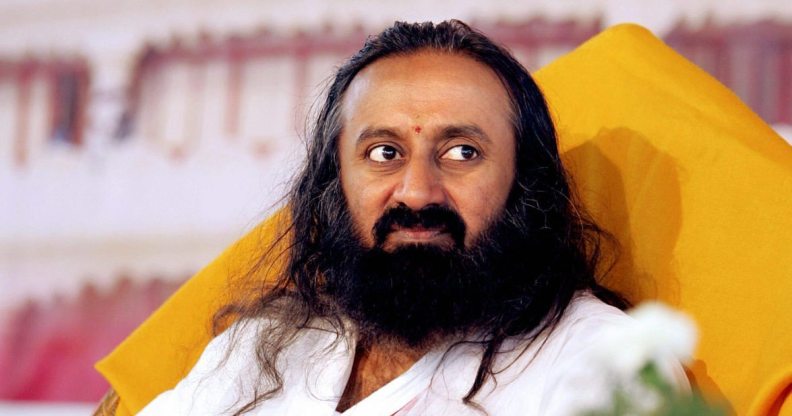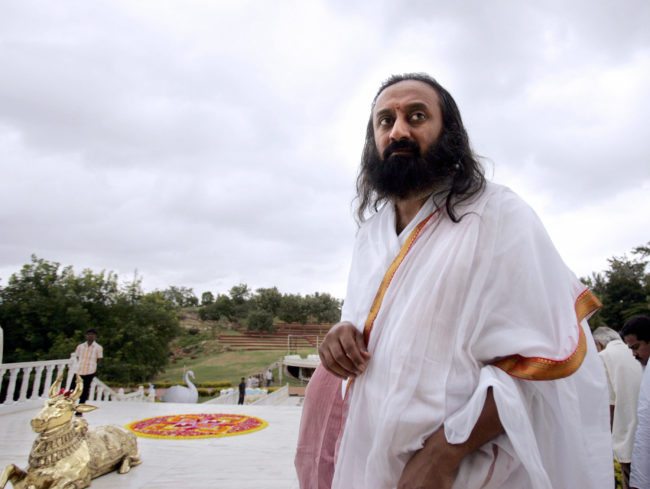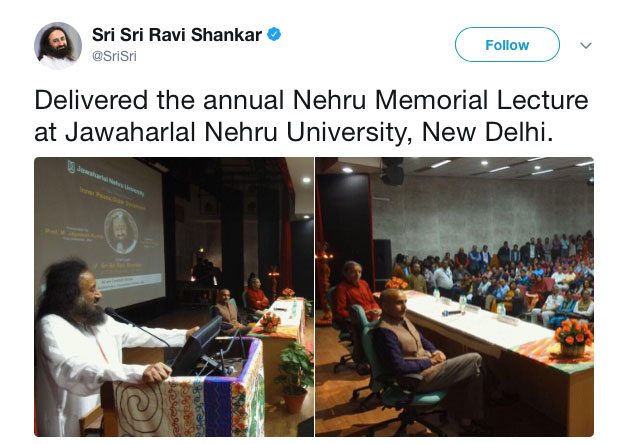Being gay is a choice, one of the most powerful men in India tells students

Photo: (DIBYANGSHU SARKAR/AFP/Getty Images)
Sri Sri Ravi Shankar, a spiritual leader praised for his humanitarian and social work told a gay student that being gay is a temporary ‘tendency.’
In a speech at Delhi’s Jawaharlal Nehru University, Sri Sri Ravi Shankar addressed students and staff for the annual Nehru Memorial Lecture.
After the lecture, the celebrated spiritual leader took questions from the audience.
Shankar was then asked a question from a gay student about how to cope with homophobic abuse from his friends and family.
Related: The British Empire’s homophobic legacy could finally be overturned in India
Shankar replied: “You treat yourself better, doesn’t matter how others treat you. You don’t think you are sick or something is wrong with you.” he said.
“If you stand up, nobody can insult you. If you feel bad about yourself, nobody can make you feel better.”

(Photo: DIBYANGSHU SARKAR/AFP/Getty Images)
“This is your tendency now…just acknowledge it, accept it, and know that this tendency is not a permanent thing. It may change.”
He continued: “I’ve seen many men who were gay later turn into heterosexuals, and there are those who are normal, who are called straight people, end up being gay later in life.”

Shankar after delivering his speech (Photo: @SriSri /Twitter)
Shankar’s opinion is unfortunately not uncommon.
Homosexuality remains illegal in India, under Section 377 of the penal code introduced under archaic British Colonial rule.
LGBT+ rights in India are tenuous, with nearly 1,500 people arrested in 2015 under the colonial-era law and nearly half of transgender teenagers facing violence prior to turning 18.
This week, LGBT+ people took to the streets in Dehli for the 10th annual queer pride parade.
Shankar is internationally recognised for his humanitarian work, receiving awards from multiple countries across the world.
Forbes Magazine had previously highlighted Shankar as the fifth most powerful leader in India.
Earlier this year, the Indian Supreme Court passed a ruling that guaranteed the right to privacy for gay people, throwing the future of the country’s anti-gay law into question.

